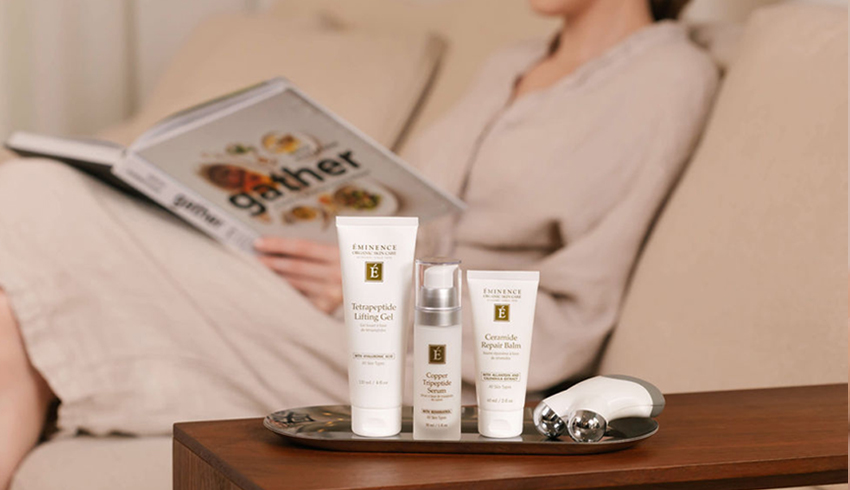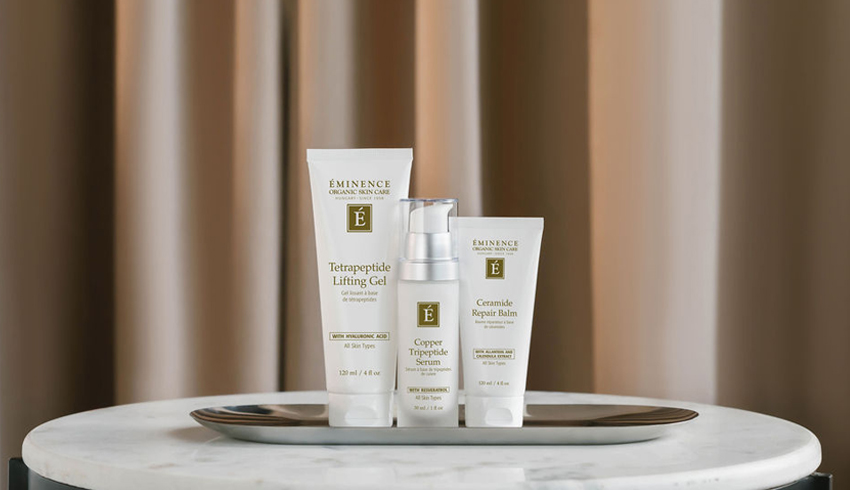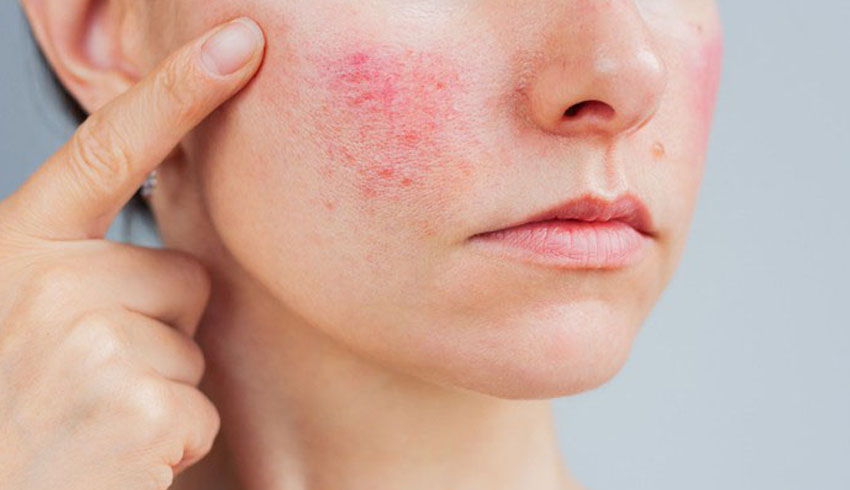
What is your skin type? If you’re unsure, there are some tests that can help you determine what type of skin you have. Once you’ve figured it out, the next question might be whether you’ll be blessed (or cursed) with that same skin type for your whole life. While some experts believe that your skin type is genetically determined and permanent, others suggest that skin type can evolve over time due to factors like age, hormonal shifts and changes in your environment. Read on to find out more about how your skin can evolve over time and what that means for the health of your complexion.
What’s My Skin Type?
Knowing what type of skin you have is an important part of the long-term health of your body’s largest organ. Not only is it a factor when you’re choosing what skin care products to use to keep your skin looking its best, it can also have an effect on the way your skin feels and how it should be treated for best results, comfort and overall skin health.
There are five different skin types, each with its own set of issues. Let’s dive a little deeper:
Normal
Normal skin is known to be healthy and balanced. Your complexion looks and feels evenly hydrated with consistent oil levels and uniform texture. Consider yourself one of the lucky ones!
Dry
If you have dry skin, your complexion doesn’t produce enough lipids to moisturize and protect itself. It can feel tight, uncomfortable and even flaky in areas of the face. On a positive note, dry skin is known to have smaller pores. On a less positive note, fine lines and wrinkles tend to be more obvious on dry skin. And, in case you’re wondering, dry skin is different than dehydrated skin — which is a skin condition and can affect people of all skin types.
Oily
Oily skin is characterized by sebaceous glands that produce too much sebum — aka the oily substance that protects your skin from drying out. Because of these overactive oil glands, your pores appear larger, your skin can look shiny and you’re more prone to breakouts.
Combination
A combination skin type can be tricky to navigate. With oil glands that are active in the T-zone (your forehead, nose and chin) and less active everywhere else (hello, dry cheeks), combination skin means that your skin requires more targeted care, not a one-size-fits-all product.
Sensitive
Sensitive skin can produce a range of different symptoms — redness and irritation high among them. Reacting to factors like lifestyle choices, chemical ingredients or environmental stressors, sensitive skin responds negatively to irritations. It’s a skin type that requires a little extra TLC to keep it calm.
Am I Stuck With my Skin Type?
So is your skin type permanent or can it change due to factors like aging, stress or moving to a new climate? Can you do anything about the skin type you’re dealt? The jury is still out on this. According to Women’s Health: “The general assumption is that your skin type is definitive. Once you’ve determined that you have dry, oily or combination skin — and built your skincare routine around it — you won’t have to worry about any changes. The reality: Skin is susceptible to shifts due to a number of factors, including environmental and hormonal changes, stress levels, diet, medications and other health issues..”
There is a difference between your skin going through temporary shifts and your skin type permanently changing. “Your skin type is genetically determined and that is not something that changes with the season,” says NYC-based dermatologist Joshua Zeichner, MD. According to him, “the only exception is that oily skin can become dry skin with age.” After menopause, this change may occur as your sebaceous glands become less active. (This happens because of natural hormonal shifts.)
How Do I Know If My Skin Type Has Changed?
It is essential to observe your skin often and pay attention to any issues that seem different than what you’re used to. If products you’ve used forever suddenly stop working, it might be time to reevaluate things and possibly switch up some of your routine. Examine whether anything changed with your environment or your health. Have you moved from a cold climate to somewhere warm and humid? Has menopause begun or are you suddenly under a huge amount of stress? Regardless of the cause, your “new” skin requires a different type of care. Paying attention and looking into products that are better suited to these new paint points can help with this shift in your skin and its needs.
Skin Changes With Menopause
According to the American Academy of Dermatology, as hormone levels plummet with menopause, your skin can become dry, slack and thin. At the same time, as levels of female hormones drop before and during menopause, some women develop teenage-like acne. But because a menopausal woman’s skin is thinner and drier, common treatments for teenage acne are often too harsh. This is the right time to visit a dermatologist to find out what your specific skin is doing and how to best treat it.
To add insult to injury, sagging, slack skin can suddenly develop larger pores as skin loses elasticity and ability to snap back. "Pores are openings in the skin's surface — the path oils and sweat take when they exit your skin — and pore size is determined by genetics, but pores can become larger due to loss of elasticity, age and damage to the support and tissue around them," says Rachel Nazarian, MD, a board-certified dermatologist in New York City. "And pores, like any hole, can fill up, and stretch out if filled with too much stuff, or for too long — and like the rest of skin, can sag and bag."
While this “new” skin type might seem to be totally different from the skin you’re used it, it’s hard to pinpoint whether your skin has changed type or has simply evolved into a new condition we’ll call “menopausal.” Regardless, it’s a big shift and your products and routine should evolve to reflect your current needs.
Skin Changes With Climate
In the winter (or with a move to a colder climate), skin can feel drier than you’re used to. Again, it’s unlikely that this means your actual skin type has changed. Chances are, your skin is experiencing dehydration and irritation brought on by cold weather (not to mention wind and dry air from indoor heat). These skin issues can be tricky to navigate but often only require a change in skin care products, rather than a whole new skin identity!
When experiencing dry, dehydrated or irritated skin from the winter air, we suggest a few tweaks to help replenish and nourish your complexion. One option we love for dry skin is the Strawberry Rhubarb Hyaluronic Serum. Hyaluronic acid is a humectant that can hold hundreds of times its weight in water. When applied to the face, it draws moisture into your skin, providing long-lasting hydration in a dry climate, which is just what your winter skin is craving.
The Stone Crop Whip Moisturizer is another great staple for all skin types. Crafted with hydrating stone crop, vitamin C-packed lemon and corn germ oil, this rich hydrator improves the appearance of dark spots and offers major moisture, which can be a huge relief when winter air is wreaking havoc.
Just as cold, dry air can cause your skin to completely rebrand itself, warm summer air, humidity and things like sun and salt water can cause skin issues of their own. Again, this is not about a change in skin type as much as it is a reaction to your environment. Usually, this is a temporary shift that will shift back when the weather changes — or that your skin will acclimate to once the first shock of the change subsides. With the warmer months, your skin can become a little oilier. But don't use that as an excuse to skip the SPF. Find one made for your skin's needs.
From our Beyond Organic line, the Echinacea Recovery Cream softens and restores normal to oily skin. This creamy leave-on moisturizer is made with echinacea, yarrow herb and aloe vera to revitalize and reduce the signs of irritation. Eminence Organics Lead Skin Trainer Natalie Pergar also recommends the Lavender Age Corrective Night Concentrate. Formulated with argan oil, jojoba oil and shea butter, this concentrate is very moisturizing and helps your skin adapt to changes the weather might be causing.
Product Picks
Which Skin Type Is Best?
While no skin type is “bad” or “good,” there are definitely characteristics that can be seens as both pros and cons to each. Dry skin, for example, can get tight and flaky, especially in the cold winter wind or after too much sun. But that same dry skin is less prone to acne in most cases, since oil production is associated with bigger pores and other telltale signs of the condition, board-certified dermatologist, Dr. Kristina Collins tells Byrdie.
Oily skin, on the other hand, is often associated with a softer, more supple complexion. Lines and wrinkles are not as quick to form and don’t look as pronounced on an oily complexion. According to Healthline: “Oil provides moisture and a plump look to the skin … genetically, dry skin tends to be thinner … and fine lines and wrinkles appear more exaggerated.”
While combination skin can be a little tricky to treat, once you get the hang of it (and figure out which parts of your face respond best to which products), you can look at it as the best of both worlds.
Sensitive skin can be a real pain — literally and figuratively. Irritation, tightness, itching and redness are no joke and can be uncomfortable if not addressed. Like combination skin, once you learn about how your own personal skin responds to certain ingredients and treatments, some of the issues can be reduced. Often sensitive skin is responding to its environment or damage to its protective barrier. Knowing that can allow you to alter your regimen to keep things calm and mitigate irritation.
Knowing your skin type is essential for healthy, beautiful skin and helps you decide on the right skin care routines and products. Need help deciphering your skin type? Visit an Eminence Organics Spa Partner and an esthetician can professionally diagnose your skin type and recommend products that will help it look and feel its best.





